Rehabilitation is “a set of measures that assist individuals who experience, or are likely to experience, disability to achieve and maintain optimal functioning in interaction with their environments. It makes the individual independent to carry out day to day activities by providing assistive devices, adaptations/modifications in the environment and training on various aspects in which the individual finds difficult to overcome.”

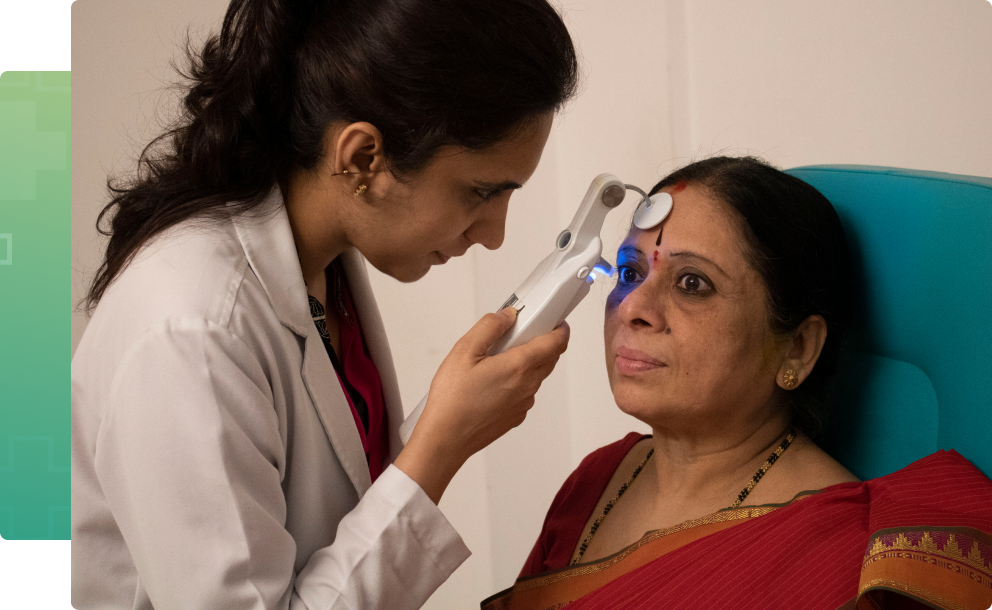
It aims at achieving the following broad outcomes

In Vision Rehabilitation, the child will be evaluated for Functional Vision (Visual Functioning/ residual vision) through criteria’s like Visual fixation, Focusing, Localization, Tracking, Eye contact, Self Awareness, Imitation, Gaze Shift, Eye hand coordination, Awareness of the environment by using illuminated and non illuminated (animate and inanimate) objects and diagnose how better the child can see after best possible corrections and treatment.

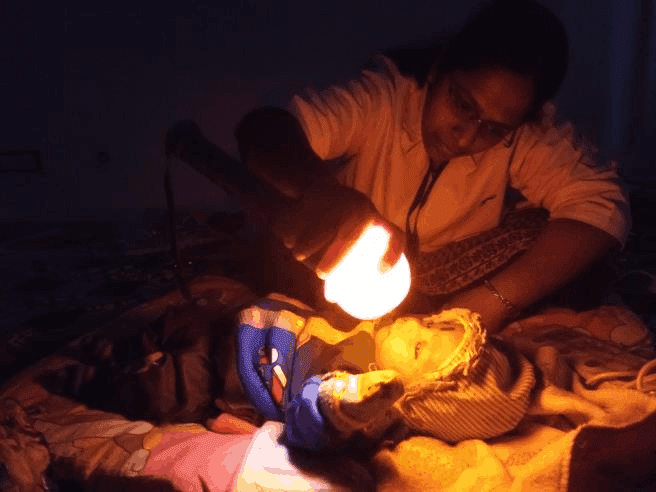
If the child has less visual functioning, Visual stimulation activities will be given to enhance the child’s visual ability. Vision Stimulation Exercises (VSE) includes showing animate and inanimate objects in illuminated and non- illuminated environments. VSE need to be done with modifications and accommodations in the child’s environment. This is given especially in the Early Intervention Stage (Birth – 6 years) for children with Visual and other disabilities.
VSE enhances improvements in the following areas Motor development, Cognitive development, play,
Speech and Language development
In Vision Rehabilitation, we concentrate on the other developmental milestones and give therapies to compensate the delays and helps in restoration by providing various indoor and outdoor activities
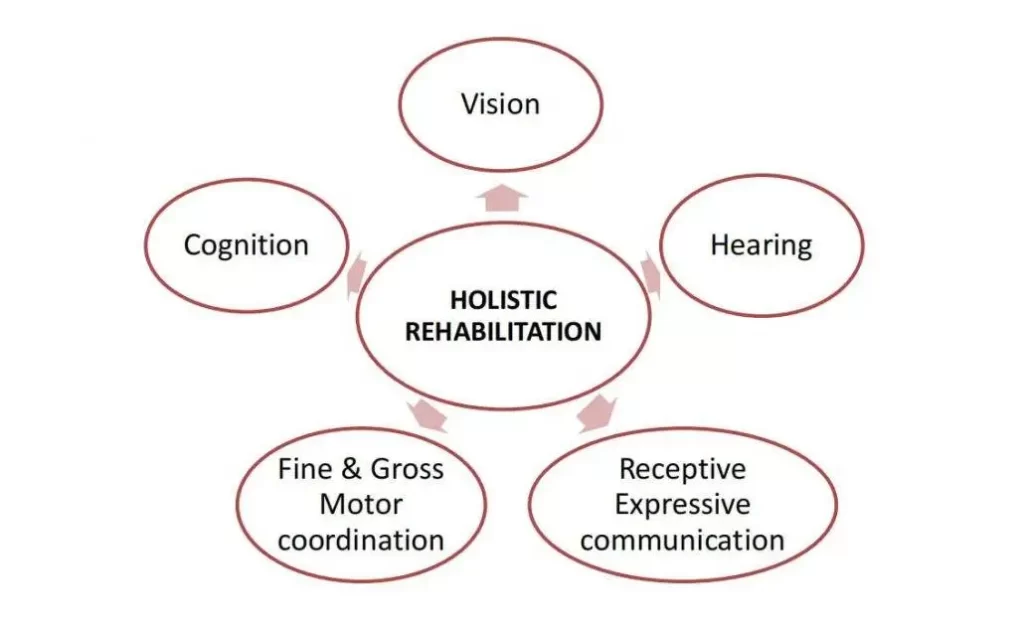
According to the age, the rehabilitation procedures could be categorized as


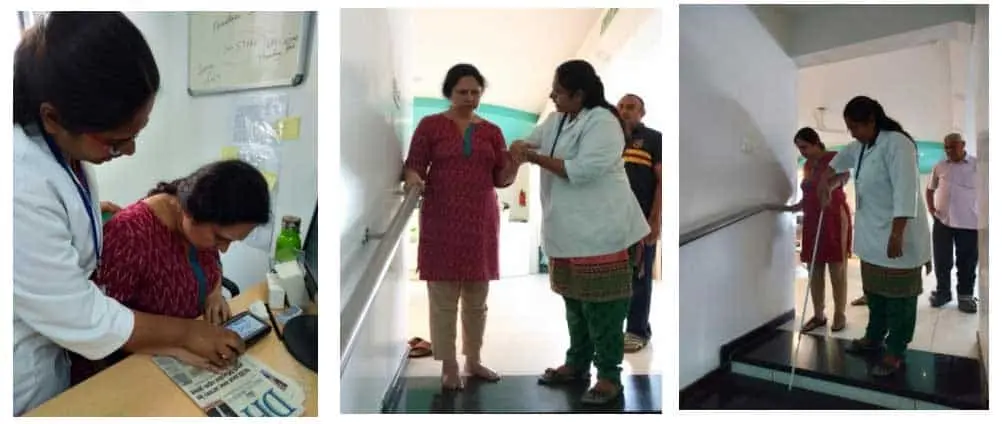
According to the age, the rehabilitation procedures could be categorized as

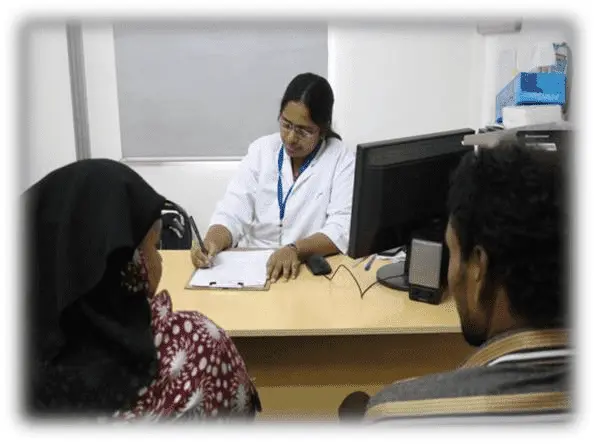



i) Vision Assessment – Near and Distance Vision, Colour, Contrast

iii) Orientation

v) Reading – Errors, Difficulties, Postures, Pace of reading

vii) Attention – Duration/ Interest based, Sustained attention
viii) Behavioural Analysis – Sitting tolerance, not troublesome

ii) Eye hand coordination

iv) Finger Dexterity

vi) Writing – Posture, Legibility, pressure in writing, spacing in writing

i) Visual Memory

iii) Figure ground discrimination

v) Visual Sequencing

vii) Auditory Processing – Auditory Memory, Comprehension, Retrieval
viii) Communication – Comprehension, Clarity, Fluency,
ix) Social Interaction and Contribution
x) Community orientation and participation
xi) Sensitivity towards visual (vision), auditory (Hearing), olfactory (smell), gustatory (taste), tactile (touch)
xii) ADL – Independent/ Non independent
ii) Visual – Spatial orientation

iv) Visual Closure

vi) Depth Perception

Motor Coordination and Balance

Vision Stimulation Exercises
i) Rope Light Stimulation

iii) Stimulation with Pattern charts and bright coloured toys

iv) Fixation, Pursuits and Saccades
v) Eye contact
vi) Face recognition
2. Sensory Integration Therapy:
i. Auditory Stimulation with varying frequencies
ii. Olfactory stimulation with varying fragrances
iii. Gustatory stimulation with varying tastes
iv. Tactual Stimulation with different textures
3. Communication:
i. Face to face Interaction
ii. Description of activities
iii. Blowing activities
iv. Sound production
v. Single, Two word, Sentence communication
4. Gross motor Coordination:
i. ROM exercises
ii. Strengthening exercises
iii. Home based Activities on the areas of delay
5. Finger Dexterity:
i. Holding rattles and toys
ii. Kneading activities (Playing with dough)
iii. Free Movements of fingers (water splash)
ii) Stimulation with Shiny materials and glow balls/ toys

6. Eye hand coordination with Cognition Involvement:
i. Single and double handed activities (threading beads, Stacking rings, connecting links etc.)
7. Concept Awareness:
i. Concepts like Body parts, day to day objects, Colours, Fruits, vegetables , Animals, Transports etc
ii. Big and small, Less/ More weight etc
8. Pre reading skills:
i. Picture comprehension
ii. Rhyming
iii. Matching, Sorting, Numbering
iv. Letter recognition, Direction
9. Pre writing skills:
i. Printing activities
ii. Scribbling, colouring, connecting dots etc
10. Reading Training:
i. Syllabification
ii. Tracking the finger while Reading
iii. Scanning the word appropriately
iv. Improving pace of reading through rehearsals
11. Writing Training:
i. Giving bold lined notebooks and Dark pencils
ii. Appropriate posture and holding pencil
iii. Providing proper spacing while writing
12. Environmental Modifications:
i. Lighting, Seating, tables etc
We Treat: